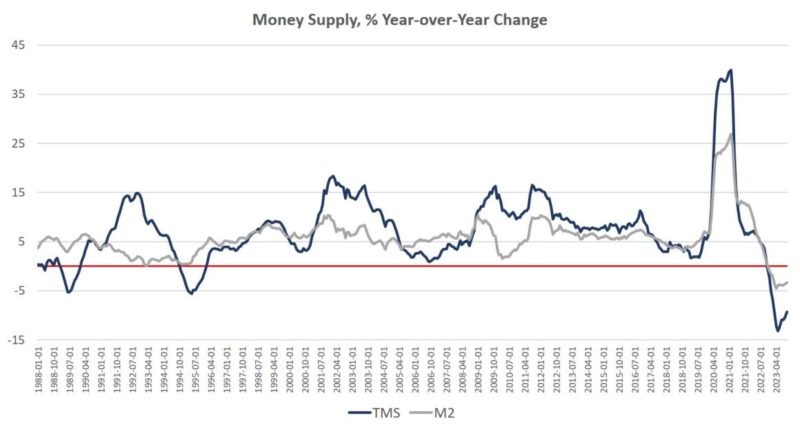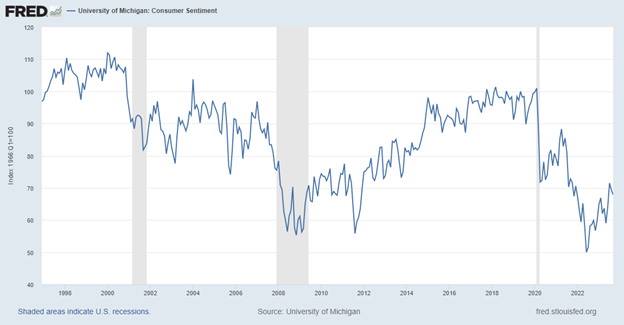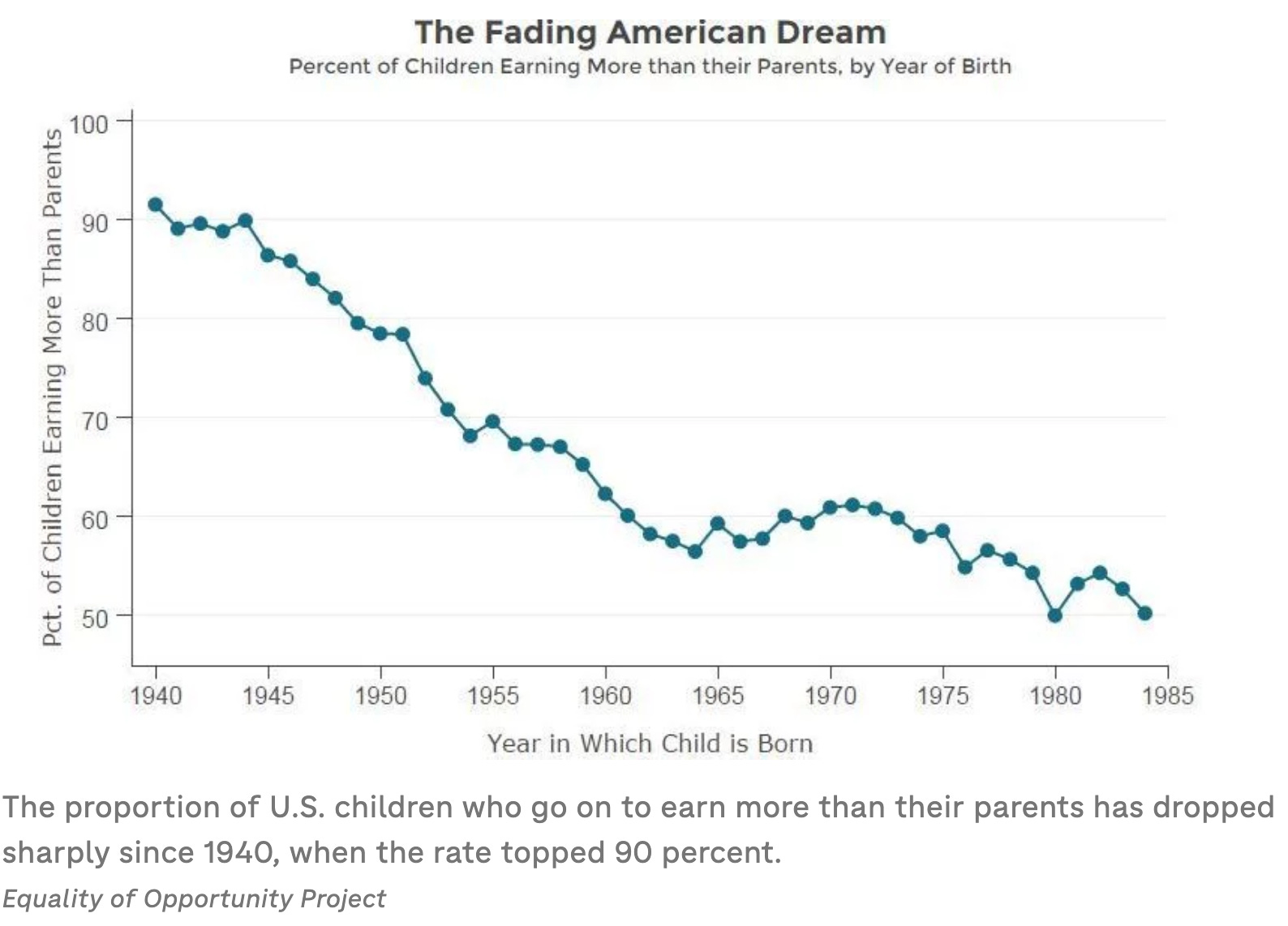Category Archive: 6b.) Mises.org
The First Enemies of Free Markets Were Conservatives, Not Socialists
As with the Republican party and the conservative movement in the United States, conservatism in the United Kingdom does not constitute a coherent ideological movement. It is, rather, a coalition of ideological groups and interest groups. Some of these are fairly libertarian in nature, as with the Thatcherites. On the other hand, conservative parties and activist groups also contain traditionalist conservatives and nationalists, neither of which...
Read More »
Read More »
Libertarianism and the Importance of Understanding Causality
A bedrock of Austrian economic thinking is the notion of causality. A libertarian worldview also requires the understanding of causality.
Original Article: Libertarianism and the Importance of Understanding Causality
Read More »
Read More »
A Rising Stock Market Does Not Drive Economic Growth
Many people believe that a general increase in stock prices is an important factor in economic growth. However, this is a questionable observation.
The view that the stock market drives economic growth originates from the observation that changes in stock prices precede changes in economic data. We suggest that various economic indicators are heavily influenced by money supply, which also drives stock prices.
The price of something is the amount of...
Read More »
Read More »
Preserving the Statist Quo: Creating a Generation of Welfare-ing, Libertine Narcissists
Not only is Washington in political turmoil, but the policies emanating from the Beltway are more incoherent than ever.
Original Article: Preserving the Statist Quo: Creating a Generation of Welfare-ing, Libertine Narcissists
Read More »
Read More »
Israel: A Rich Nation Receiving the Bulk of US Foreign Aid
Why is Israel a primary benefactor of United States foreign aid? Is Israel a proxy for US imperialism in the Middle East? Does American aid to Israel benefit constituencies other than the defense industry? The ongoing feud between Israel and Palestine has raised these questions to the forefront of public debate. Israel is the leading recipient of American foreign aid, despite its wealth. In 2022, The Economist ranked Israel as the fourth most...
Read More »
Read More »
America the Obese: How Taxpayers Are Forced to Ruin Their Health
Since the original sugar tariff of 1789, US government policy has been to subsidize sugar, a policy that has led to serious consequences, including a health crisis of obesity.
Original Article: America the Obese: How Taxpayers Are Forced to Ruin Their Health
Read More »
Read More »
What Would Happen If the US Stopped Supporting Ukraine?
Over the weekend, border-policy negotiations between Senate Democrats and Republicans fell apart. The talks were meant to firm up Republican support for the president’s massive $105 billion military support proposal ahead of Wednesday’s vote by including additional funds for border security in the spending package. Now, with no imminent approval of further aid to Ukraine, hawks in government and the media are trying to stoke panic about what will...
Read More »
Read More »
Progressive Interventionism Is Ruining American Healthcare
Sen. Elizabeth Warren is at it again: demanding government intervention in the nation's healthcare system to deal with problems caused by earlier government intervention.
Original Article: Progressive Interventionism Is Ruining American Healthcare
Read More »
Read More »
The Money Supply Continues its Biggest Collapse Since the Great Depression
Money supply growth fell again in October, remaining deep in negative territory after turning negative in November 2022 for the first time in twenty-eight years. October's drop continues a steep downward trend from the unprecedented highs experienced during much of the past two years.
Since April 2021, money supply growth has slowed quickly, and since November, we've been seeing the money supply repeatedly contract year over year. The last time the...
Read More »
Read More »
30-Year Mortgages Are Still a Sweet Deal—For People who Already Have Them
The thirty-year mortgage, of all things, came under attack in a piece by Ben Casselman in the New York Times. The three-decade fixed rate loan is, of course, a creation of the government and adds constant fuel to the US housing market. The title of Casselman’s piece calls the most popular debt instrument for home purchases “weird,” “cushy,” and “old.” He blames low interest rate thirty-year fixed loans for the broken housing market.
Casselman...
Read More »
Read More »
Socialism vs. Economic Freedom
[From Economic Policy: Thoughts for Today and Tomorrow (1979), Lecture 2, "Socialism" (1958)]
I am here in Buenos Aires as a guest of the Centro de Difusión Economía Libre.1 What is economía libre? What does this system of economic freedom mean? The answer is simple: it is the market economy, it is the system in which the cooperation of individuals in the social division of labor is achieved by the market. This market is not a place; it...
Read More »
Read More »
The Legacy of Legacy Admissions Is Not What the Critics Claim
Critics of college legacy admissions claim that the practice is racist and admits undeserving students. The longer-term results of such admissions show why colleges continue to employ them.
Original Article: The Legacy of Legacy Admissions Is Not What the Critics Claim
Read More »
Read More »
Understanding Our Disharmony
One of the political trends of the past few years has been an expanding disconnect between political unity rhetoric and the increasing disharmony politicians’ proposals create.
The root of this beltway cognitive dissonance is the rapid increase in government power. Unity rhetoric helps mobilize candidates’ political bases and can sway some independents, helping win elections. However, their postelection expansion of government power into areas...
Read More »
Read More »
Cryptocurrency: Integrity Destroyer or Policy Scapegoat?
Is cryptocurrency a scam or is it a legitimate alternative to state-corrupted money? Political elites want to eliminate it altogether, but that alone should tell us we need to better understand this alternative money source.
Original Article: Cryptocurrency: Integrity Destroyer or Policy Scapegoat?
Read More »
Read More »
Paul Krugman Blames Economic Pessimism on Partisanship. He’s Wrong.
Paul Krugman can’t figure out why everybody is so bummed about the economy. From his perspective, we should all be jumping for joy, praising Joe Biden, and publicly signing fifty-year commitments to vote Democrat. Official statistics show that “unemployment is still near a 50-year low, yet inflation has been falling fast.” But the ignorant masses simply won’t get with the picture. Krugman admits “surveys of consumer sentiment and political polls...
Read More »
Read More »
The Taxman Cometh
Philip Goff wants to solve the why of the universe, but his answers are not always logically coherent, as David Gordon explains.
Original Article: The Taxman Cometh
Read More »
Read More »
How Not to Desocialize: Argentina Edition
Argentina’s president-elect, Javier Milei, is set on implementing promarket policies, including a vast desocialization, or privatization, of the economy. The privatization of the Argentine airline industry is seemingly first on the agenda (along with privatization of state-owned media). Privatization is necessary, but above all else, it must be done correctly.
Aerolíneas Argentina, the state-owned airline, makes up 63 percent of the domestic...
Read More »
Read More »
The TSA Is Still Crazy after All These Years
In the past two decades, the TSA has proven it is ineffective in providing real security for airline passengers. However, its growing incompetence is matched only by its increasing intrusion into travelers' lives.
Original Article: The TSA Is Still Crazy after All These Years
Read More »
Read More »
The Worse-than-Medieval Economics of Climate Technocrats
Mainstream economists turned climate warriors use cost-of-production methods to determine the “true” social cost of carbon. They appeal to a discredited methodology falsely attributed to medieval Scholastics.
Original Article: The Worse-than-Medieval Economics of Climate Technocrats
Read More »
Read More »
The More Complex the Society, The Less Government Control We Need
Progressives claim that perhaps individual freedom might be appropriate for a simpler society but that as society grows more complex, the need for government grows. As Leonard Read pointed out, however, greater complexity requires greater freedom, not less.
Original Article: The More Complex the Society, The Less Government Control We Need
Read More »
Read More »




























